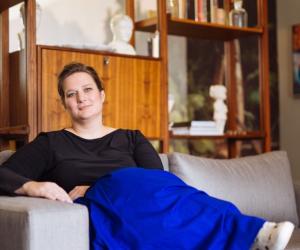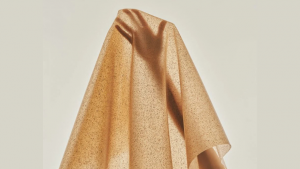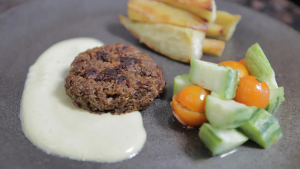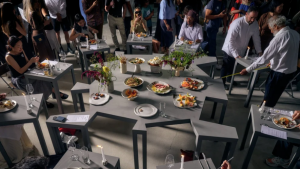
For a number of years, Spier Wine Farm in South Africa has hosted a series of collaborative thought-sharing experiences and events that promote progressive thinking around food and wine. Their fourth annual food and wine conference, taking place at the end of October 2015, is a day of interactive talks, workshops and tastings, featuring speakers from all around the globe.
Curated by culinary experience designer Hannerie Visser of Studio HV, the Spier Secret Conference celebrates craftsmanship in the culinary arts, as well as a creative approach to edibles and imbibeables. We asked Visser to explain the importance of paying better attention to your food.
Why is it important to have a platform that celebrates and promotes food design?
Food design adds another layer to an experience and relies on multi-sensory triggers to create immersive experiences that build memories. For example, a sound track can influence the taste of wine, as will be illustrated by Janice Wang at this year’s Spier Secret Conference on 30 October.
Do you think enough people understand what food design is?
It’s not necessary that people understand it, because food design is something that guests/consumers shouldn’t necessarily notice or be aware of. Food design is not about gimmicks and culinary tricks, it’s the subtle manipulation of an environment and senses by combining psychology and science and the effect thereof on the senses.
What is most interesting to you when it comes to food – texture, flavour, shape, colour, origin…?
Provenance - the story behind it, where it comes from, who farmed it, and how.
How are our senses linked to our palettes?
Most of what people perceive as "taste" actually results from their sense of smell. The human tongue can only detect 5 basic taste sensations: sweet, sour, bitter, salty and umami. All other taste is a result of the sense of smell.
Famous food designer Marije Vogelzang said something along the lines of “food is the most important material we have” – do you think this is true?
Yes. Marije Vogelzang was a speaker at the Spier Secret Conference in 2013. She said: "When I think about food I think about something much bigger than only cooking. Food is agriculture, biology, psychology, transport, human connection, animal connection, waste, health, nurture, nature, science, and also gastronomy."
What important messages do consumers need to hear? How can we become more responsible stewards of the world with our food choices?
Always ask where your food comes from.
Is there a theme for the 2015 conference? “Conscious consumption”?
Sustainability is an intrinsic part of the Spier philosophy, for example all produce used at Eight restaurant is either grown on the farm or sourced from nearby farmers. Natural and fresh ingredients are creatively combined to create nourishing, healthy, and delicious farm-to-table food.
Do you pay attention to trends in the global food and wine industry? And if so, do you have any insight for us?
The biggest food trends highlighted by this year’s speakers’ line-up (from interviews we did with them last week) are:
Jackson Boxer, food writer and Chef Patron at Brunswick House, UK: “I believe we will continue to see an ever-greater emphasis on transparent sourcing, traditional forms of cooking (over direct heat, wood ovens, charcoal grills) and hopefully an ever-increasing appetite for vegetables.”
Frederik Bille Brahe, Danish chef and founder of Atelier September: “Be on the lookout for sincerity and honesty; that defines whether the food is interesting or not.”
Janice Wang, PhD student at the Crossmodal Research Lab, Oxford University, where she is researching the relationship between sound and flavour: “Eating insects, which are the future for sustainable sources of protein.”
For more information and for tickets you can visit the Spier Secret Festival website.







